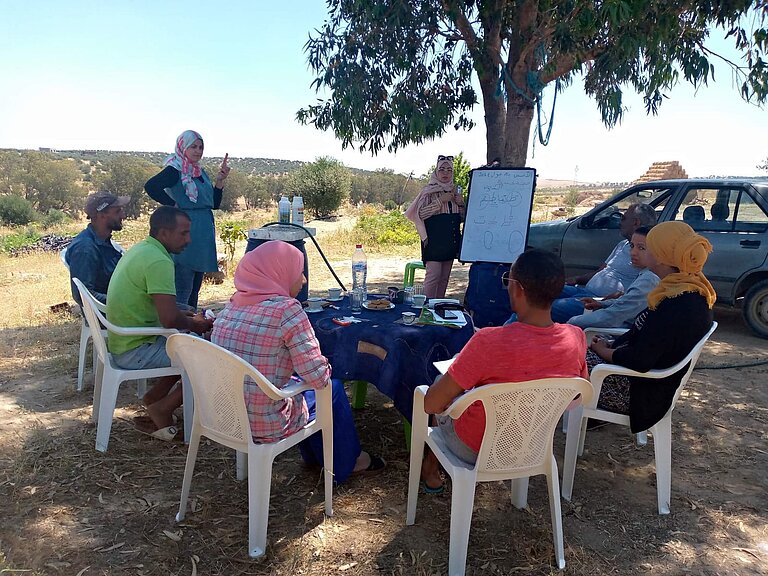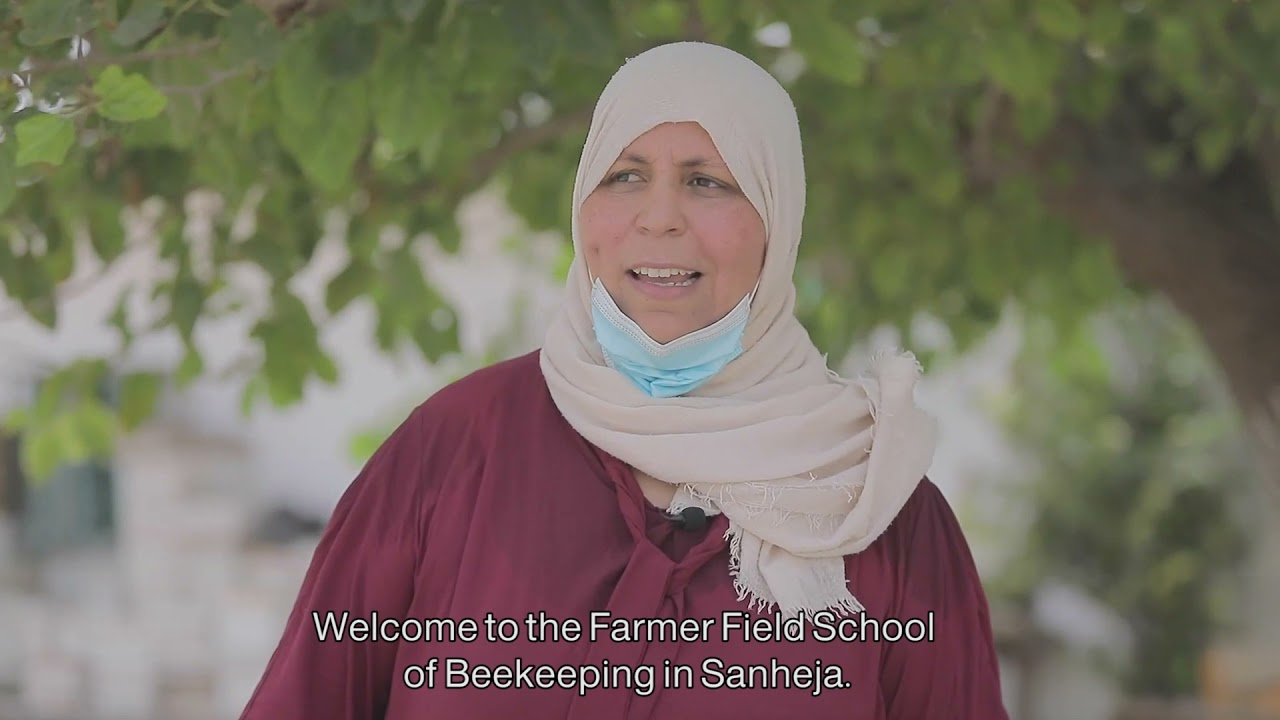Farmer Field School adds literacy – Combining adult education and skills development for small farmers in Tunisia
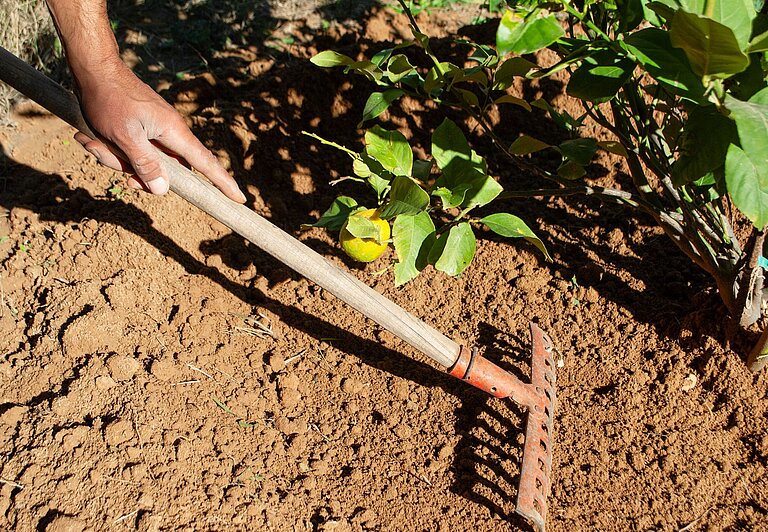
Since 2015, the Tunisian government has been implementing a new strategy for Adult Learning and Education (ALE). This strategy recognizes that adult education is a driver for sustainable development. However, ALE is currently facing enormous challenges in Tunisia. An increased illiteracy rate has been observed since 2019, at national and regional level. This comes along with a gender disparity, as women are usually more affected than men. Further disparities have been noted in rural areas where the illiteracy rate is much higher than in urban areas. In addition, rural areas are usually poorer and are characterized by a low level of education, rural migration and subsistence agriculture.
Behind this background, the Tunisian Agency for Agricultural Extension and Training and the National Centre for Adult Education, in collaboration with DVV International Tunisia, have started a new initiative: the Farmer Field School adds Literacy (in French: Champs Ecole Producteurs mention alphabétisation; CEPα).
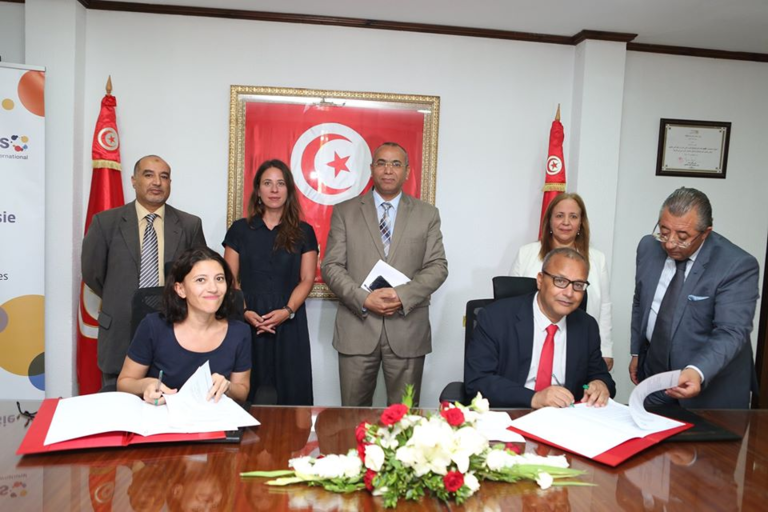
The objectives of this new initiative are to:
- Minimize the illiteracy rate;
- Ensure food security with its four dimensions: access, availability, quality and stability;
- Improve the socio-economic integration of vulnerable populations.
What is a Farmer Field School?
The Farmer Field School is a concept developed by the Food and Agriculture Organization of the United Nations. This concept is based on the observation and the need for farmers to associate and understand effectively their own work by choosing the method and solutions that are appropriate for them to professionalise.
The Farmer Field School brings together a group of farmers who engage in a practical time-limited learning process in the field during a production cycle. This basic learning cycle aims at strengthening the farmers’ knowledge and analytical skills, test and validate new practices, and assist them in making farm management decisions. The learning process also seeks to improve the cohesiveness of the group.
CEPα – a best practice example for North Africa
The CEPα approach developed by DVV International with its Tunisian partners combines basic education with skills training and entrepreneurship promotion in the agricultural sector.
Six CEPα have been implemented in the agricultural region of Manouba (Northern Tunisia) in the sphere of:
- chicken farming
- beekeeping
- exploitation of aromatic and medicinal plants
- processing of dried tomatoes
- processing of olive trees
- processing of pomegranate trees
A group of facilitators were instructed in order to train the farmers in their respective communities. Among other things, they received trainings in technical agriculture, value chains, digital marketing, and how to calculate the value of agricultural products. On average, 15 learners per group participated in the courses; most of them were women.
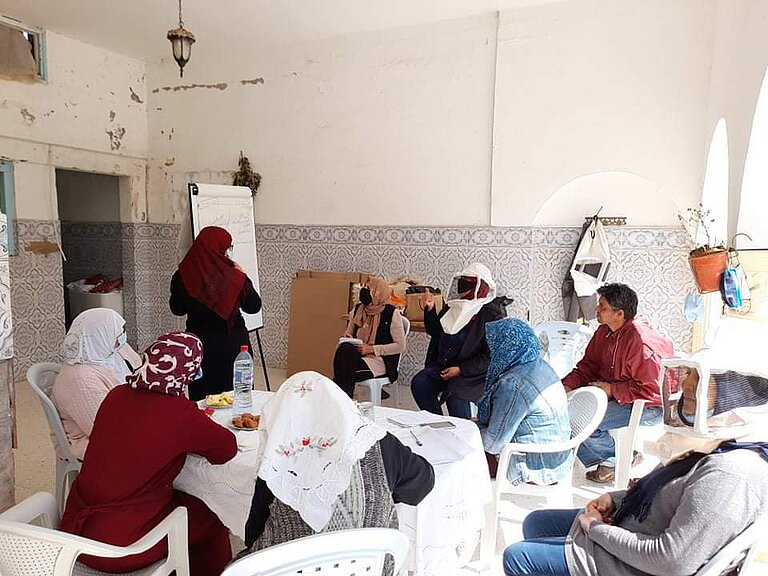
The most important outcome was that specific knowledge on this approach and its potential for agricultural as well as for community development was disseminated, both nationally and internationally.
In Tunisia, the governmental and non-governmental institutions and the private sector have built a consensus on generalizing this CEPα approach throughout Tunisia. Furthermore, adult education specialists from other Maghreb countries have expressed interest in applying this approach in their countries as well.
At the local level, a new dynamic is created between different actors: partnerships are established between adult education centres, agricultural training centres, and the private sector. The farmers who attended the programme are further strengthened in their agricultural know-how, and better supported in their efforts to create income-generating activities. Also, social, economic and cultural participation is improved, which has led to a change in their attitudes and behaviour towards the village community; rather than solving problems individually they now organise themselves in groups.



